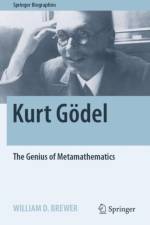av William D. Brewer
1 447
During the Romantic period, Hannah Cowley (1743-1809) achieved fame both as a playwright and a poet, composing popular comedies and, as Anna Matilda, amorous Della Cruscan verse. But despite a recent surge of scholarly interest in her works, her controversial comedy The World as It Goes has never been published.This edition of The World as It Goes is based on the Larpent licensing holograph manuscript held by the Huntington Library (LA 548). The transcription of the play is supplemented with an introduction providing cultural, theatrical, historical and biographical contexts; contemporaneous reviews; and a note on the text.The World as It Goes satirizes English tourists visiting a southern French resort and the scoundrels who prey on them. The play's cast included some of the era's most popular comic actors: John Edwin, John Quick, Charles Lee Lewes, William Thomas Lewis (aka "e;Gentleman Lewis"e;), Ralph Wewitzer (who specialized in stereotypical foreigners), Isabella Mattocks (who specialized in "e;vulgar"e; characters) and the famously rotund Lydia Webb. Elizabeth Younge, acclaimed for her portrayals of sentimental wives and daughters, played Lady Danvers, and the future novelist and playwright Elizabeth Inchbald appeared in the role of Sidney Grubb.Before the premiere of The World as It Goes at Covent Garden, Cowley's comedies The Runaway (1776) and The Belle's Stratagem (1780) and her farce Who's the Dupe (1779) had been theatrical hits. But reviewers who admired her previous plays found The World as It Goes vulgar and morally offensive, and its sole performance on February 24, 1781, was disrupted by audience members who loudly objected to a ribald scene in a bedroom antechamber and repeatedly interrupted Younge as she attempted to deliver the epilogue, which contained a risqu reference to the transgender Chevalire D'Eon. Cowley heavily revised the play, but its second incarnation as Second Thoughts Are Best (performed March 24, 1781) was also a failure. The World as It Goes is Cowley's most bawdy, multigeneric and socially subversive comedy and features a valet masquerading as his master and aspiring to take a seat at Westminster; French and German swindlers; a seductive countess; a lecherous, nouveau-riche London "e;Citizen"e;; an antiquarian bluestocking modeled after Lady Anna Miller; a fatuous aristocrat who neglects the wife he adores to be seen as fashionable; and a French monk who attempts to rape an Englishwoman. Among the contemporaneous issues and cultural products addressed in the play, its prologue and epilogue are English tourism on the continent; the pantomime Harlequin Free-Mason (1780); the January 1781 French raid on Jersey Island; the Chevalire d'Eon's androgyny; the Gordon riots and Lord George Gordon's acquittal in the ensuing treason trial; the recent performances by the French ballet dancer Gatano Appoline Balthazar Vestris at the King's Theatre; anxieties about ambitious and oversexed male servants; bluestocking antiquarianism; the pretensions of the London merchant class; the pro-American revolution Bill of Rights Society and the London Association; James Graham's Celestial Bed; and prison ships ("e;Hulks"e;).The comedy's catastrophic failure influenced the manner in which Cowley handled controversial issues in her subsequent dramas and provides insights into late eighteenth-century anxieties and mores. Mortified by the damnation of The World as It Goes, she omitted it from her posthumous Works (1813), but she reworked some of its themes, situations and characters in her final play, The Town before You, which was staged in 1794. Although The Town before You, like The World as It Goes, portrays nefarious impostors, a philistine businessman, a spurious connoisseur and a wealthy female eccentric obsessed with classical art, it enjoyed a respectable run of nine nights.






